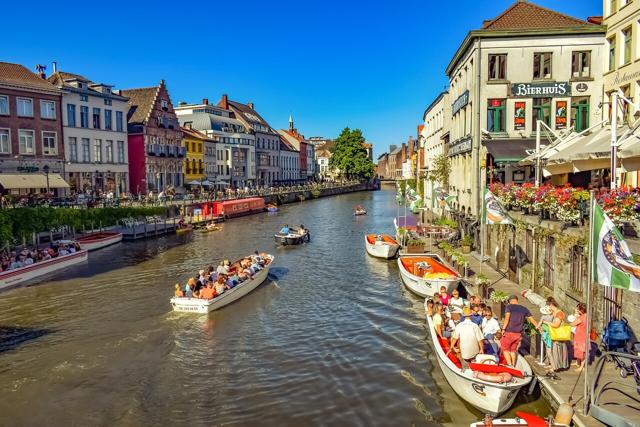Gravensteen
What to expect
The Gravensteen is a medieval castle in the city of Ghent, East Flanders in Belgium. The current castle dates from 1180 and was the residence of the Counts of Flanders until 1353. It was subsequently re-purposed as a court, prison, mint, and even as a cotton factory. The castle features a large central donjon, a residence, and various smaller buildings surrounded by a fortified, oval-shaped enceinte lined with 24 small towers. It also has a sizeable moat, fed with water from the Lys. Today, the Gravensteen is a museum and a major landmark in the city, offering audio tours and a unique collection of torture equipment. Visitors can explore the castle's history, including its role in the Industrial Revolution and its restoration in the 19th century. The castle also hosts cultural activities, events, and weddings, making it a great place to visit with family and friends
Plan your family visit to the Gravensteen with these blog insights 👇
Top things to do in GHENT with kids, including maps and getting around

Activities: We spent time at Gravensteen, the ‘Castle of the Counts’ overlooking the city. The boys really enjoyed it here with it being a great combination of ancient ruins, weaponry, and a torture chamber! There are a few tricky staircases so you’ll need to leave the buggy at reception but the rest of it is fairly child-friendly
Highlights: The boys really enjoyed it here with it being a great combination of ancient ruins, weaponry, and a torture chamber! ✨
(Tip!) Ghent with kids: sights top 9!

 Famxplor
Famxplor